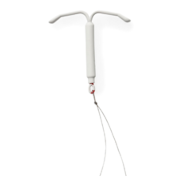How to protect yourself if you’re traveling to a ‘Zika zone’
Don’t panic—here are the steps you can take to reduce your risk of Zika infection.

Summer vacation season may be at a close, but plenty of people still need—or want—to travel. But with Zika cases on the rise, where is it safe to go? And if you have to travel to an area where Zika infections have been reported, how can you protect yourself? Keep calm and read on.
Why should I care about avoiding Zika?
Zika is a virus that can be spread either through a mosquito bite or sexual transmission. If someone is infected with Zika, they may feel like they have the flu—or they may not have any signs at all. Zika is riskiest for women who are infected during pregnancy, because the virus can have major negative effects on the fetus. Women who become pregnant shortly after being infected with Zika may also be at risk. Many babies infected with Zika while they were in the womb have been born with birth defects including neurological problems like microcephaly (small heads with defects in the brain), hearing problems, vision problems, or problems growing.
How can I protect myself from Zika?
If you have plans to travel in the upcoming weeks, find out whether your destination has had cases of Zika. The CDC’s website for Zika and Travel lists all the different countries affected by Zika. (Remember that there have been cases of Zika reported in the U.S. too, including mosquito-transmitted infections in Florida.) You can click on each listed country to learn more about the Zika situation there and what precautions you should take.
So what do you do if you learn that Zika infections are happening where you are going? Don’t worry—there are many things you can do to protect yourself.
Protect against mosquito bites.
In order to prevent mosquito bites, you have to make yourself unappealing to mosquitos. Here are a few good ways to do that:
- Wear long sleeves and pants to minimize exposed skin.
- Use bug spray. (Even if you’re pregnant, bug spray is safe.)
- Wear clothing that is treated with Permethrin, a chemical that deters bugs.
- Try to stay in air-conditioned hotels or homes. If you can’t stay somewhere with air conditioning, make sure you have a mosquito net that can cover your bed to prevent mosquito bites while you are sleeping.
Protect against sexual transmission.
Remember that while there is a lot of talk about mosquitos, the Zika virus can also be transmitted during sex. If you or your sexual partner have traveled to areas with Zika, you should use condoms carefully for several months (the recommended amount of time is different for men and women) after returning from your travels. This is particularly important for partners of pregnant women—if you’re pregnant and your partner has been to a Zika zone, you should use condoms (or skip sex altogether) for the entire pregnancy. Many people who get Zika don’t have any symptoms, so it’s important to take these precautions even if you don’t see signs of infection.
Don’t forget the birth control.
About half of all pregnancies in the U.S. are unplanned—and most of those pregnancies are to people who weren’t using birth control consistently or at all. In fact, women who do use contraception consistently make up only 5% of all unplanned pregnancies in the U.S. So if you’re not trying to get pregnant right now, the risks of Zika are just another reason to get on top of your birth control. This may mean using a super-effective method like an IUD or implant or using any method more carefully and consistently.
If you are planning to get pregnant and have to travel to a Zika zone, it could be a good idea to talk with your health care provider about pregnancy planning before your trip. If you can’t see your provider before the trip, try to get an appointment for after you return and use contraception carefully until then.
Going Forward
With all the talk about Zika, it’s understandable that a lot of people are canceling their planned vacations and trips. If you want to be extra cautious and travel isn’t necessary, delaying or canceling plans may be a good way to avoid exposure—especially if you want to get pregnant now or in the near future. If you decide to travel, there are many ways to reduce your risk of Zika infection. And if you’re not trying to get pregnant now or in the near future, use birth control carefully (or avoid sex altogether) to reduce your odds of having a pregnancy affected by Zika.
Check out the CDC’s website for the latest information about the Zika. And if you are interested in birth control, Bedsider can help you find the right method for you. Safe travels!
How do you feel about this article?

Heat up your weekends with our best sex tips and so much more.

